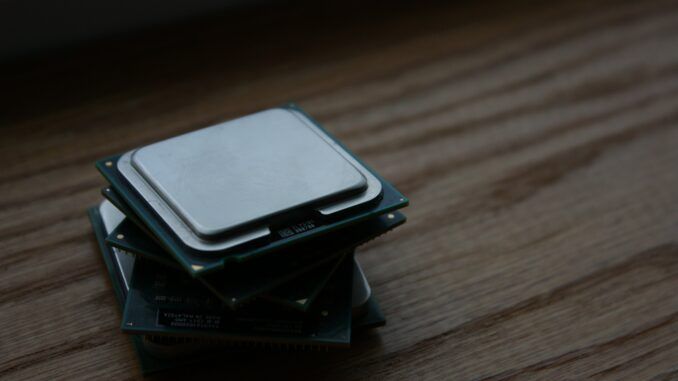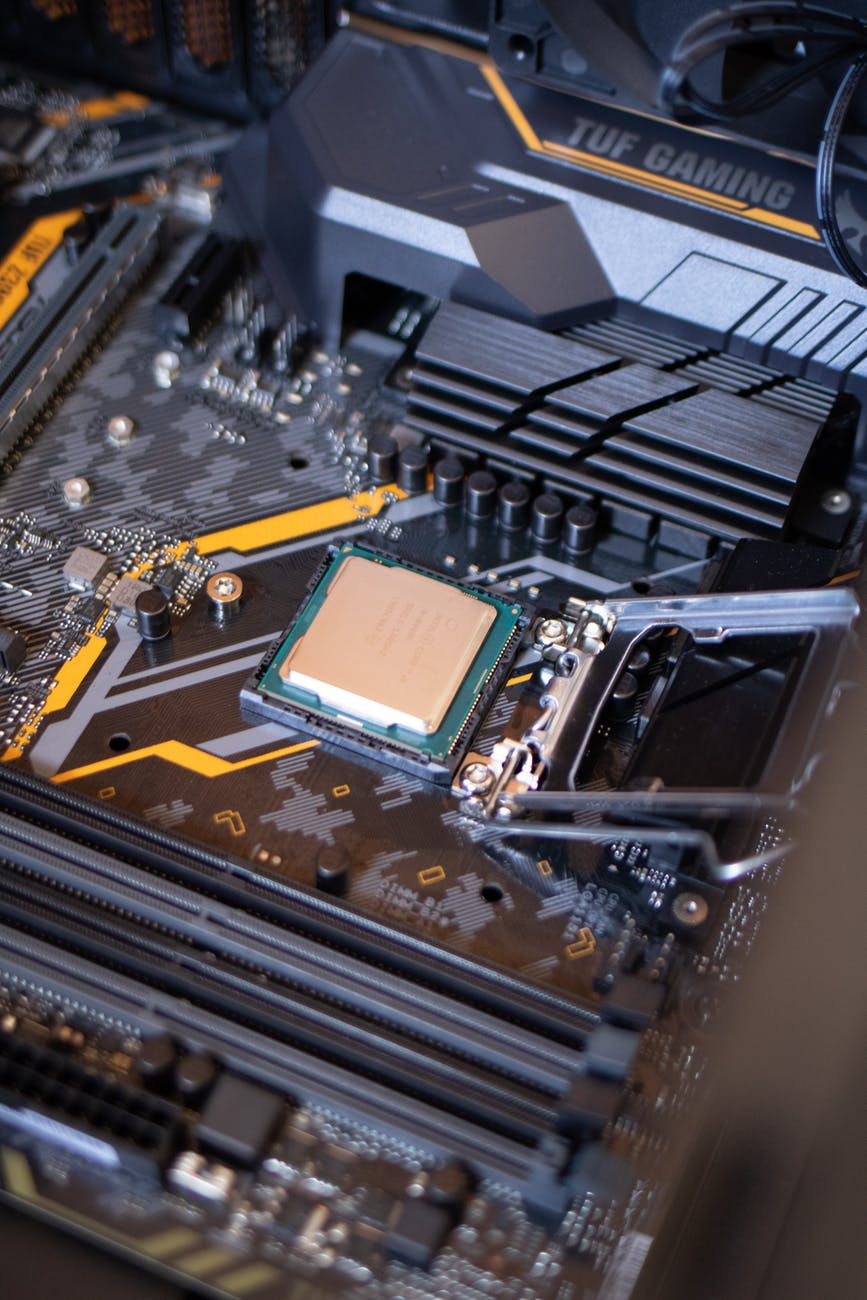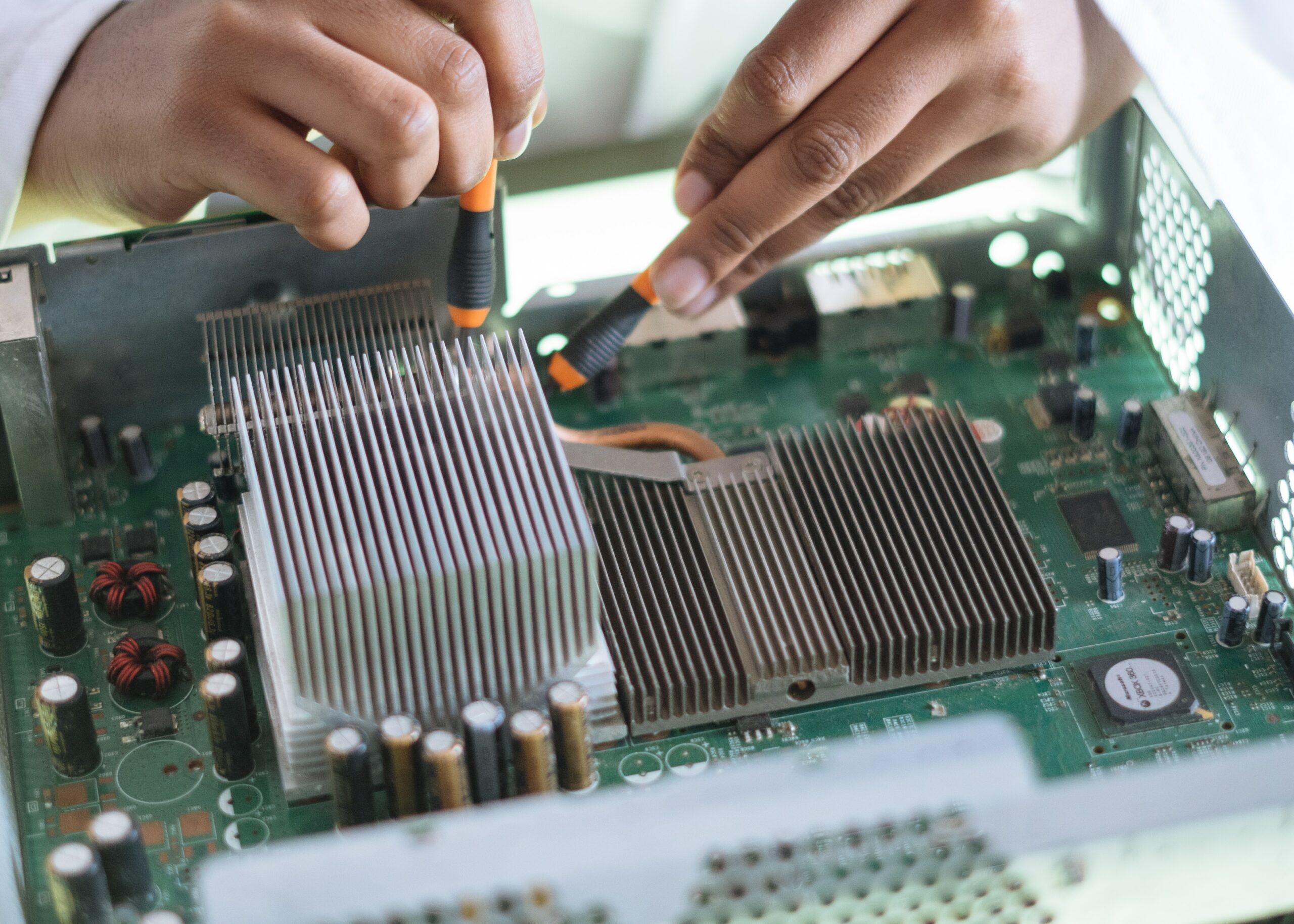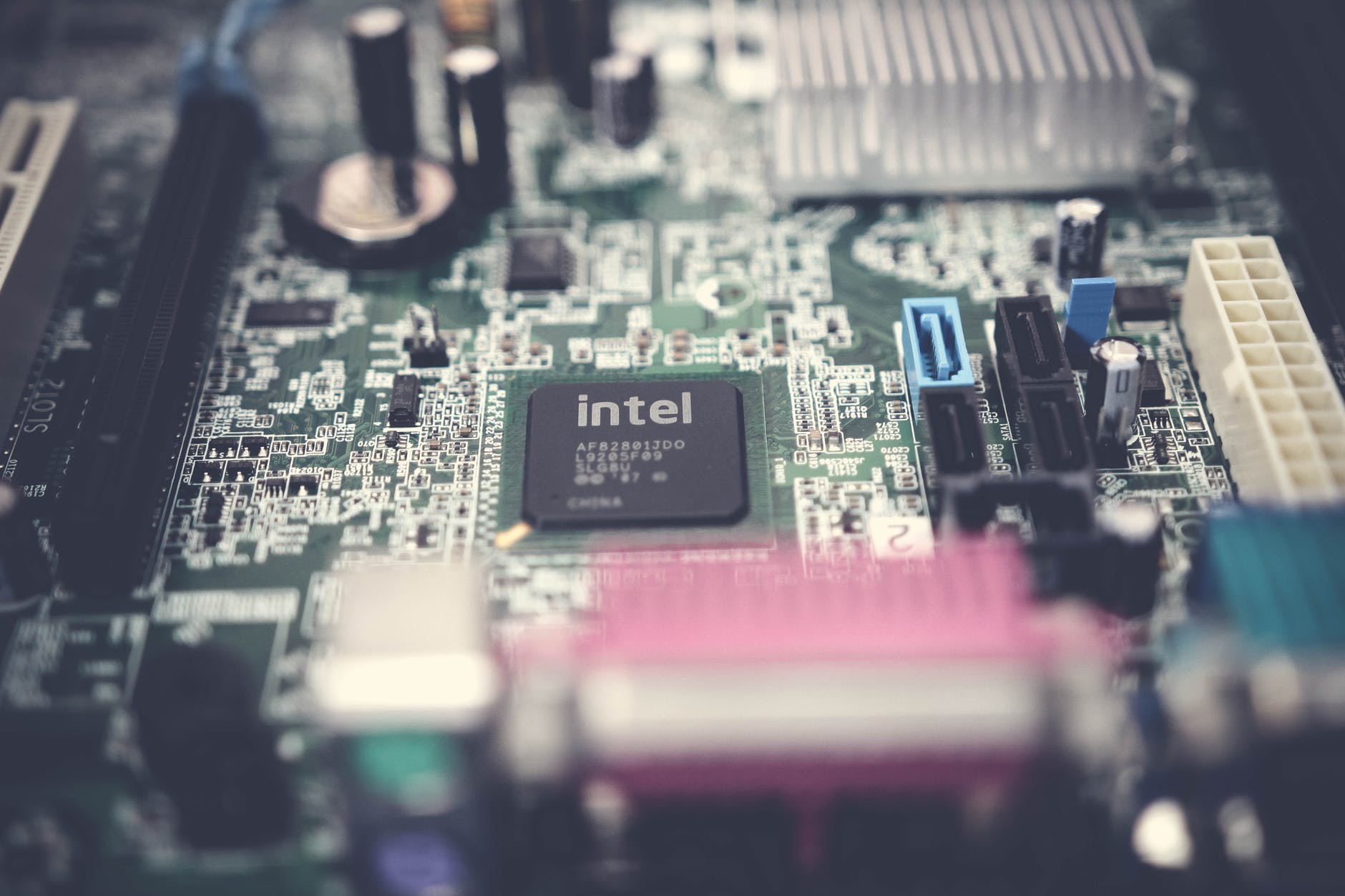
Modern CPUs do millions of calculations and processes every single day. They are the heart and soul of any phone, laptop, streaming console, or custom gaming rig… you name it.
Despite the fact that they are constantly working without a break, they can last an extremely long time if the components that surround them are taken care of.
The life expectancy of a processor on its own, however, is a different story. So, how long do CPUs last?
The short answer is generally accepted to be that a CPU will last just as long as it is still useful to you.
In this article, we are going to explore why processors can last as long as they do on their own, how long AMD and Intel CPUs last, and some ways that modern gamers decrease the lifespan of their processors.
A Brief Overview of Processor Durability
The answer to the question of how long a CPU can last largely depends on the individual usage scenario that the processor in question finds itself in.
But, in most use cases, they can last a very long time. Some consumers report that they have run the same processor for over 20 years in some machines with no problems.
Take an ATM, for example–they have central processing units, just the same as your gaming desktop (although understandably less powerful), and yet they run quite literally 24/7. Some ATMs last decades before being replaced.
One way to put it is that modern CPUs generally outlive their usefulness in the majority of cases. Modern gamers tend to upgrade parts of their custom gaming rigs every few years as the new generation of cutting-edge technology becomes available–if their budgets allow for it, of course.
The average user who doesn’t overclock their system has adequate cooling and doesn’t allow case fans and filters to become clogged with dust for an extended period of time will find that their CPU will most likely last for a couple of decades.
Because CPUs have no moving parts, they can last for decades, depending on how they’re used. The durability of the processor itself never quite seems to be a problem for people–the problem lies in the components that surround the processor, which tend to wear out a lot faster than the CPU itself.
- YOU MAY ALSO LIKE: Best CPUs Under $200
How Long Do CPUs Last Before You Need To Swap Them?
The answer to this question largely depends on your specific needs.
Most processors are considered to be obsolete after ten years, but video games and other rendering and processing applications are requiring more and more horsepower every day.
Additionally, CPUs themselves are becoming so fast and so efficient that you might need to swap out your processor after just 3 or 4 years.
More or less, the only thing that is consistently reported to decrease the lifespan of processors is mismanaged thermals.
Excess heat can slowly wear out all of the components in your computer, not just your CPU. Graphics cards, power supplies, and even solid-state storage drives perform better the cooler they are.
Less heat means less wear and tear, so you can easily increase the life expectancy of all of your components, processors included, by ensuring that you have sufficient cooling and plenty of airflow.

- RELATED ARTICLE: Best CPUs Under $300
Modern Safeguards Against Thermal Throttling
A couple of decades ago, most CPUs did not have built-in technology that would allow them to shut themselves off if they detected temperatures that exceeded their ability to operate.
Nowadays, CPUs have built-in thermal throttling protection procedures, which automatically shut down the processor and the rest of the components so as not to fry the system.
Before these technological advances were made, you could very well fry your processor if it was not cooled properly.
Nowadays, you probably don’t need to worry about that unless your PC runs a processor from the early 2000s.
How Long Does A Frequently Overclocked CPU Last?
For quite some time, it was commonly believed in the enthusiast community that overclocking your CPU would significantly decrease its life expectancy.
Still, modern use-case scenarios have determined that that notion is not something to concern yourself with.
Because the overwhelming majority of processors today are so secure and protected, enthusiasts say that your CPU is likely to stop being useful before they actually suffer any degradation due to the process of prolonged overclocking.
That means that if overclocking was something that you wanted to dabble in without fear of harming any of your components or shortening the life expectancy of your processor, you absolutely can.
In the same way that engineers introduced smart thermal throttling protection into CPUs, they have also been able to work overclocking protection into both motherboards and processors.
These modern precautionary inclusions will prevent you from jumping to voltage and clock speed settings that exceed the technological limitations of each chip.
For instance, an air-cooled processor that becomes unstable at a 4.5 GHz clock speed will shut off and force a manual restart.
However, the same processor in a water-cooled scenario might be able to exceed 5 GHz because the processor is equipped with technology that allows it to detect that, because of the cooling capabilities applied, the overclocked processor is not exceeding its maximum operating temperature.
Because of the average shelf life of processors nowadays, due to technology advancing so quickly, overclocking should not be a cause for concern because, in almost all scenarios, your CPU model will become obsolete before it can come close to being damaged from overclocking.
- READ ALSO: Best CPUs for Streaming
What Are The Effects of Overvolting on CPUs?

The effects of overvolting a CPU are similar to that of overclocking.
The less voltage you run through your processor, the better. In the same way, the less overclocking stress you put on a chip, the longer it will last–in theory.
Lower voltages create less heat and thereby cause less harm to the transistors within the processor. But again, this is not significant in the long term because of how fast modern gamers swap their chips.
The same law applies to overvolting your processor as it does to overclocking it.
In this day and age, your processor is more likely to break down because of the effects of the components surrounding it than the actual daily ‘wear and tear’ on the processor itself.
Processors nowadays are made to withstand the extra stress that consumers will place upon them in the form of increased clock speeds and voltages.
This change gradually became commonplace as engineers and manufacturers studied their consumers’ habits and decided to allow those same users to have more flexibility.
The mere fact that engineers are designing chips to be overclocked alone should tell you all you need to know about what they think of overvolting.
- YOU MAY ALSO LIKE: How Much Should I Spend on a CPU?
How Long Do AMD CPUs Last?
AMD’s own engineers and developers rate their CPUs to have a shelf life of at least five years, which looks like a pretty low number to begin with.
However, this number is likely not an accurate reflection of real-world performance and is most likely a massive understatement.
AMD CPUs, in recent years, have had the reputation of running hotter than their Intel counterparts, so keeping your AMD CPU cool will allow it to achieve its maximum potential.
The biggest difference between AMD and Intel CPUs when it comes to overclocking is that all AMD chips come unlocked, unlike Intel, where certain models of the same chip exist, some of which are locked.
AMD processors are notoriously more user-friendly and react better to overclocking than Intel chips do, so they have become the clear-standing choice for many overclocking enthusiasts.
Keep in mind, though, that the newer generations of AMD’s CPUs require certain overclocking-specific motherboard sockets to be accessed.
There are plenty of ways to overvolt AMD chips safely, but going above their recommended voltage limit can be unsafe for the chip. For instance, all of the latest-generation Ryzen processors have default voltage ratings of 1.3v to 1.4v.
Pushing these chips far upward of their voltage rating, such as to 1.5v or above, can severely limit the expected lifespan of an AMD chip.
How Long Do Intel CPUs Last?

One interesting difference to note between AMD and Intel processors is that Intel claims that their CPUs have a shelf life of 10 years, unlike AMD. This is also an understatement.
Some Intel quad-core processors from 2006 are still sought after today because of how cheap they are while still performing admirably in light titles, such as Rocket League and other eSport games.
This performance can be achieved from those older chips while significantly overclocking them, too, which is proof that the marketed lifespan of a CPU does not matter as much as how you treat it.
For both AMD and Intel processors, as long as you can reasonably overclock and cool efficiently, the advertised lifespan of the CPU itself is negligible at best.
- RELATED ARTICLE: Are Threadrippers Good for Gaming?
How To Safely Overclock While Maintaining The Shelf Life Of Your CPU
Overclocking and overvolting CPUs can be tricky and extremely difficult to get right the first time.
There are a plethora of software applications that allow you to apply an automated profile to your graphics card or processor, which will enable you to overclock and overvolt to some degree.
However, professional overclockers know the ‘ins and outs’ of changing and applying custom voltage settings, BIOS hacks, efficient stress testing, and much more while still keeping the chip within the boundaries of healthy workloads and safe temperatures.
While we can’t give you all of that information here, we can tell you that safely overvolting and overclocking your CPU will not have a discernible effect on the longevity of your CPU.
As long as you keep your thermals under control and have a motherboard that supports serious overclocking, an up-to-date processor with built-in fail-safes and preventative measures, an energy-efficient and reliably-rated power supply, you should not feel any impact on the lifespan of your CPU.
Keep in mind that tuning your CPU’s operational settings with additional clock speed and voltage preferences considerably stresses your processor and its surrounding parts, mainly the motherboard and the power supply.
When done carelessly, you can fry a chip, but that isn’t easy to do nowadays, thanks to modern processor engineers trying their best to ensure that the CPU knows when to power itself off.
Because of where technology is today, overclocking and overvolting for an extended period of time will not have a discernible negative effect as long as adequate cooling is achieved.
The average overclocker will not kill a CPU within its estimated time of usability, and you are likely to upgrade to the next best thing long before you run into any problems with your CPU.
- READ ALSO: Best 360mm AIO Coolers
Final Thoughts
Nowadays, processors outlive their own usefulness and tend to simply become obsolete long before they break down.
According to AMD and Intel, respectively, CPUs can last 5 to 10 years, although the average user will find that they’ll last as long as they have a use for it.
How long do CPUs last, then?
Our final verdict is that they will last as long as you want them to, providing that you have adequate cooling, a reliable power supply, and follow the instruction manual for the relevant components.

I’m afraid for a standard PC / Mac user the CPU will last as long as it is compatible with the operating system running on it. Otherwise, if the PC is connected to the Internet, it will offer interesting vulnerabilities to be exploited by hackers. For example, the Pentium i5-4590T, released in 2014, is no longer supported by Intel, so Microsoft Windows 10 support will end in 2025, so the effective lifespan is approximately 10 years. Not to mention that the processor could have been sold years after its launch and that its power capabilities to run next-generation software are sufficient.